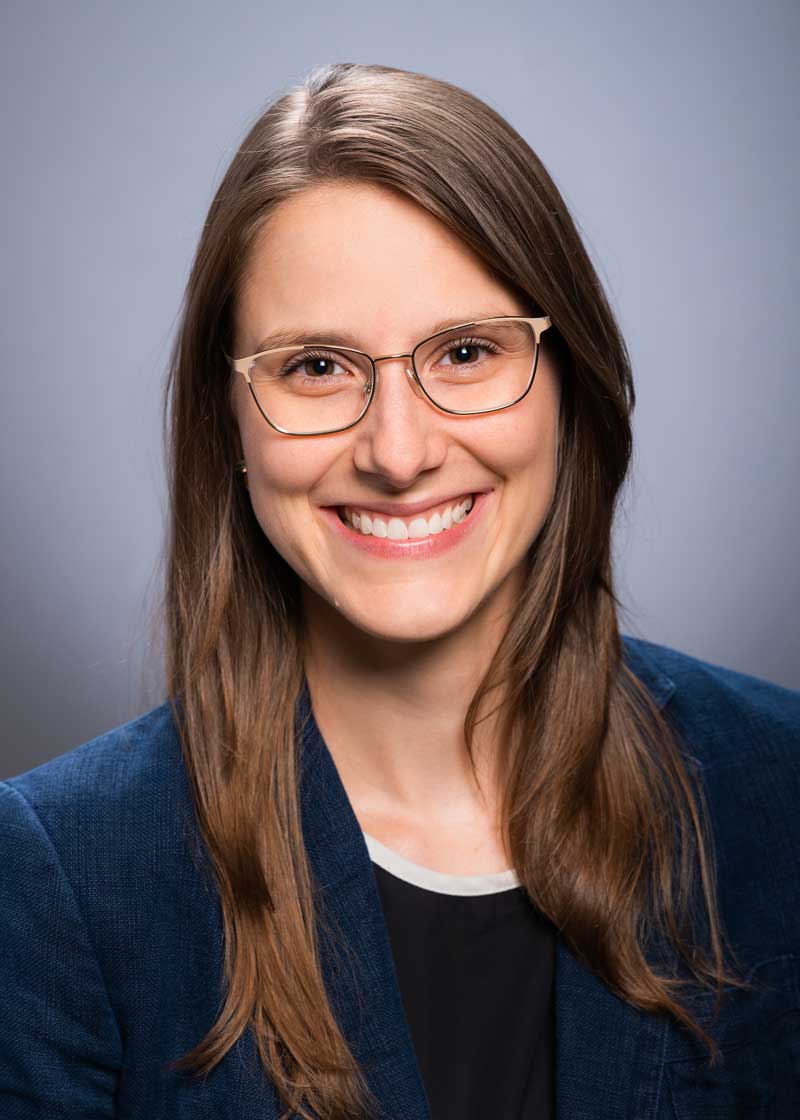Assistant Professor
CH 213F
(205) 934-9897
Research Interests: Intellectual and Developmental Disabilities, Specific Learning Disabilities, Williams syndrome, Down syndrome, Autism Spectrum Disorders, academic achievement, reading, emotional well-being
Office Hours: By appointment
Education:
- B.A., Psychology, Universidade Federal de Minas Gerais, Brazil
- Certified Cognitive-Behavioral Therapist, Wainer Psicologia Cognitiva, Brazil
- M.A., Developmental Psychology, Universidade Federal de Minas Gerais, Brazil
- M.S., Experimental Psychology, University of Louisville, Louisville, KY
- Ph.D., Experimental Psychology, University of Louisville, Louisville, KY
- Postdoctoral Research Associate, University of Connecticut, Storrs, CT
Dr. Caroline G. Richter's research expertise is in the area of children with neurodevelopmental disorders. She is founder and director of the Science of Child DevelopmenT And NeuRodiverSity (STARS) laboratory. She is interested in understanding the cognitive and socio-emotional aspects that contribute to the variability on the academic achievement of individuals with neurodevelopmental disorders. She is particularly interested in working with children with learning disabilities, autism spectrum disorders, and Williams syndrome. She hopes that the results of her research can be used to inform targeted assessments and interventions, leading to improvements in the quality of life of individuals with neurodevelopmental disorders and their families.
-
Recent Courses
- PY 415 Intellectual and Developmental Disabilities
-
Select Publications
- Richter, C. G., Siegelman, N., Mahaffy, K., Bunt, M. van den, Kearns, D. M., Landi, N., Sabatini, J., Pugh, K., & Hoeft, F. (2022). The impact of computer-assisted technology on literacy acquisition during COVID-19-related school closures: Group-level effects and predictors of individual-level outcomes. Frontiers in Psychology. (under review). Preprint: https://osf.io/geb62/
- Haft, S. L., Greiner de Magalhães, C., & Hoeft, F. (2022). A systematic review of the consequences of stigma and stereotype threat for individuals with specific learning disabilities. Journal of Learning Disabilities (Advanced online publication). https://doi.org/10.1177/00222194221087383
- Mervis, C. B., Greiner de Magalhães, C., & Cardoso-Martins, C. (2022). Concurrent predictors of word- reading and reading comprehension for 9-year-olds with Williams syndrome. Reading and Writing: An Interdisciplinary Journal, 35, 377–397. https://doi.org/10.1007/s11145-021-10163-4
- Greiner de Magalhães, C., Pitts, C. H., & Mervis, C. B. (2022). Executive function as measured by the Behavior Rating Inventory of Executive Function-2: Children and adolescents with Williamssyndrome. Journal of Intellectual Disability Research, 66(1-2), 94–107.https://doi.org/10.1111/jir.12858
- Mervis, C. B. & Greiner de Magalhães, C. (2022). Williams syndrome. In M. Beauchamp, R.Peterson, M. D. Ris, H. G. Taylor, & K. O. Yeates (Eds.). Pediatric neuropsychology: Research, theory,and practice, 3rd ed. New York: Guilford.
- Greiner de Magalhães, C., Cardoso-Martins, C., & Mervis, C. B. (2021). Spelling abilities of school-aged children with Williams syndrome. Research in Developmental Disabilities, 120, 104129. https://doi.org/10.1016/j.ridd.2021.104129
- Greiner de Magalhães, C., Mervis, C.B. & Cardoso-Martins, C. (2021). Cognitive predictors ofarithmetic, reading, and spelling in Brazilian Portuguese-speaking children. Reading and Writing: An Interdisciplinary Journal, 34, 174–198. https://doi.org/10.1007/s11145-020-10062-0
- Greiner de Magalhães, C., O’Brien, L. M. & Mervis, C. B. (2020). Sleep characteristics andproblems of 2-year-olds with Williams syndrome: Relations with language and behavior. Journal of Neurodevelopmental Disorders, 12(32), 1–16. https://doi.org/10.1186/s11689-020-09336-z
- Cardoso-Martins, C., Gonçalves, D. T., de Magalhães, C. G., & da Silva, J. R. (2015). Word reading and spelling ability in school-age children and adolescents with autism spectrum disorders:evidence from Brazilian Portuguese. Psychology & Neuroscience, 8, 479–487. https://doi.org/10.1037/pne0000029
- Cardoso-Martins, C., Gonçalves, D. T., & de Magalhães, C. G. (2013). What are the mechanismsbehind exceptional word reading ability in hyperlexia?: Evidence from a 4-year-old hyperlexic boy’s invented spellings. Journal of Autism and Developmental Disorders, 43, 3001–3003.https://doi.org/10.1007/s10803-013-1857-0
Please visit Dr. Richter’s Google Scholar page for more information about her publications.
